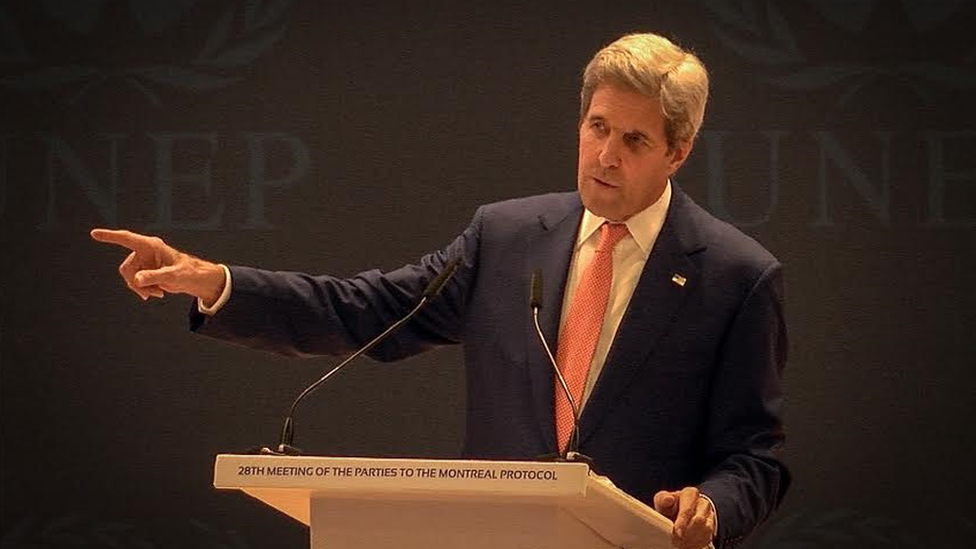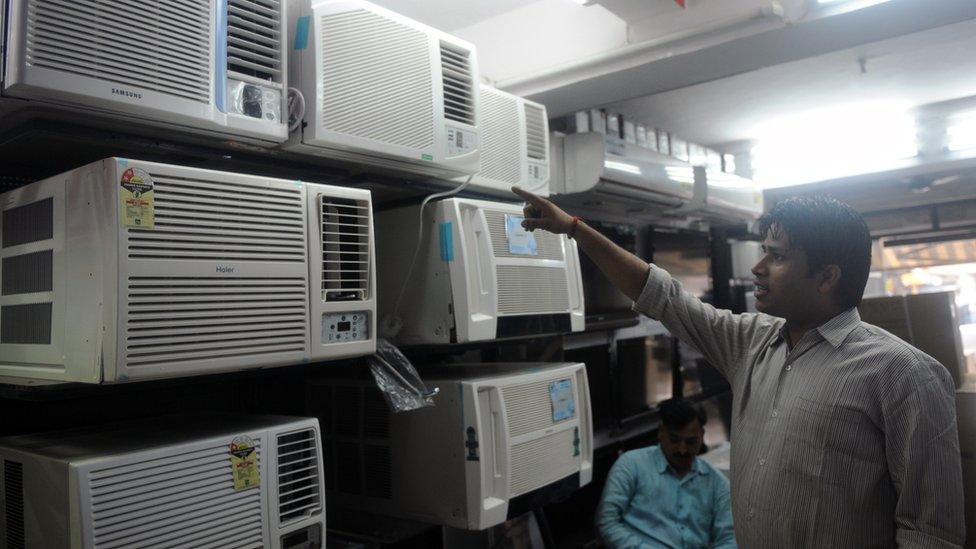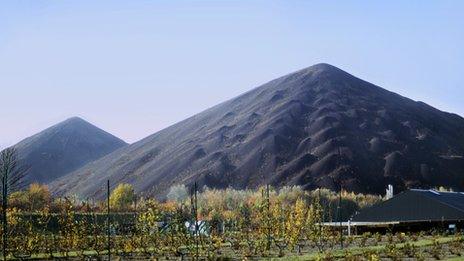Deal expected on phasing out 'disastrous' greenhouse gases
- Published

US Secretary of State John Kerry urged delegates to adopt an ambitious deal
US Secretary of State John Kerry told delegates meeting here that hydrofluorocarbon (HFC) gases were "disastrous for our climate".
Widely used in refrigeration and air conditioning, the chemicals are playing a growing role in driving up global temperatures.
Mr Kerry urged representatives from almost 200 countries to finalise a deal that would rapidly phase them out.
Eliminating HFCs could curb warming by up to half of a degree by 2100.
The rise in the use of HFCs came about as a result of the Montreal Protocol. That landmark agreement, signed in 1987, eliminated the chloroflurocarbons (CFCs) that were enlarging the hole in the Earth's protective ozone layer.
As a replacement in hairsprays, fridges and air conditioning, HFCs worked wonderfully well. The only drawback is their global warming potential - up to 4,000 times greater than CO2. HFCs are playing a rapidly increasing role in pushing up the planet's temperature.
With the Paris climate agreement committing countries to keep global temperature rises under 2C this century, the possibility of eliminating up to 0.5C through the phasing out of HFCs is seen as a relatively easy process.
The first step, though, is for countries meeting here to reach agreement on an amendment to the Montreal Protocol.
"What we do here today is actually about much more than one amendment, about much more than the Montreal Protocol," John Kerry told the delegates.

Demand for air conditioning in India and other developing countries is booming
"It's about whether we have actually woken up as a world, in a meaningful way, to the harsh reality of climate change."
The US, EU, island states and many African countries are pushing for a rapid phase-out, with a peak in use around 2020 and a rapid phase-down after that.
Three way split
India, Pakistan and the Gulf States want the elimination of these gases to happen several years later.
Complicating matters further is that there appears to be a split in the ranks of the developing countries.
"The Chinese seem willing to move more quickly with the Indians and some of the oil rich Gulf states like the Qataris and the Saudis, unwilling to do so," said Paul Bledsoe, a former Clinton White House climate official.
"It's possible that there are two standards for developing countries, one for the more ambitious and one for the laggards."
The idea of a three part agreement is frowned on by some as adding unnecessary complications to an already complex process.
There are also worries about the exemption gleaned by the Gulf states.
They have successfully argued that ambient temperatures in their region are so high and they are so reliant on air conditioning that they should have an extra four years to implement changes.
Mr Kerry urged parties here to compromise and remember the greater good.
"No country has the right to turn its back on this effort, to forget about the meaning of a multilateral effort where the world is looking to us to literally save this planet from what we ourselves have chosen to do in respect of how we power our energy," he told the delegates.
'Low hanging fruit'
But the officials conducting the negotiations say they are open to a more complex framework, arguing that it makes everything more clear.
"This is the first time we have gone beyond freeze dates, this brings everything to the table and allows us to set the rules of the road," said Gina McCarthy, administrator of the US Environmental Protection Agency and part of the US negotiating team here.
"And because we have a framework that all the developing countries are comfortable with, we can go from here to produce the detailed clarity that you would expect and amend to provide."
"If we reach an agreement, we think it is going to be a clear, ambitious amendment, because the amount of HFCs that will be reduced and the amount of CO2 equivalent will be quite remarkable."
Delegates were also wrangling over money to help industries in developing countries to phase out HFCs. Last month a group of donor countries and philanthropists pledged $80 million dollars to help the transition. Negotiators were warned that now was the time for agreement.
"No-one will forgive you if we cannot find a compromise at this conference," warned UN Environment Executive Secretary Erik Solheim.
"This is one of the cheapest, easiest and lowest hanging fruits in the entire arsenal of the climate negotiations I am absolutely confident that we can find that compromise."
Follow Matt on Twitter @mattmcgrathBBC, external and on Facebook, external.
- Published25 August 2015

